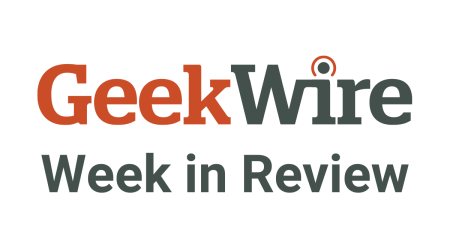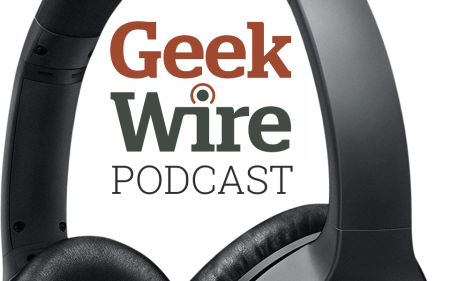When Home Healthcare Goes Digital: UW Spinouts Create AI-Powered Diagnostic Tools
In a significant advancement for home healthcare, two University of Washington spinouts—Wavely Diagnostics and Apertur—have joined forces to create what they’re calling a “virtual medicine cabinet.” This digital platform, which launched this September, aims to empower families with AI-powered smartphone apps that can help diagnose common health conditions without an immediate trip to the doctor. The partnership addresses two of parents’ most anxiety-inducing health concerns: ear infections and potential concussions. By combining their technologies in a single platform, these Seattle-based startups are pioneering a new approach to accessible healthcare that could save families both time and money while reducing unnecessary medical visits.
The technology behind these innovations is both sophisticated and remarkably practical. Wavely’s app, now available in the App Store, uses acoustic reflectometry—essentially bouncing sound waves off the eardrum—to detect middle ear fluid, a key indicator of ear infections. Users need only the app and special ear test tips (available on Amazon) to perform the scan at home. Meanwhile, Apertur’s technology employs pupillometry, measuring how the pupil reacts to light, to identify potential neurological conditions like concussions and fatigue. Both applications leverage existing smartphone capabilities combined with specialized algorithms to turn everyday devices into powerful diagnostic tools. As Jacob Reider, Wavely’s chief health officer and a former family physician, explains, “This is core data science and the way that both of these products work is very reliable and predictable.” He notes that acoustic reflectometry itself isn’t new—he used a $400 specialized device for the same purpose in his practice 20 years ago—but the innovation lies in making this capability accessible through devices people already own.
The partnership addresses a genuine need in home healthcare management. According to Arna Ionescu Stoll, CEO of Wavely, informal surveys of parents consistently show that ear infections and head injuries rank among their top health concerns for children. These worries frequently drive families to seek medical attention, often resulting in unnecessary clinic visits that strain both healthcare resources and family schedules. With the new platform, parents can quickly assess these conditions at home, potentially saving trips to urgent care or emergency rooms. The subscription-based service, starting at $60 per year, also offers integration with virtual care providers like Summer Health, allowing users to share scan results directly with healthcare professionals for consultation and treatment recommendations when necessary. This streamlined approach represents a significant shift in how families might manage routine health concerns before seeking in-person medical care.
Looking beyond ear infections and concussions, the virtual medicine cabinet concept has substantial room for growth. Stoll revealed that Wavely has identified 56 companies currently developing smartphone or commodity hardware applications for medical diagnostics or AI health tools. The potential expansion areas include tests for strep throat, skin rashes, anemia, hydration levels, respiration, heart rate, blood pressure, and more. “It’s an inevitability that these companies have to come together into a unified platform at some point,” Stoll observed, suggesting that this partnership represents just the beginning of a more comprehensive home diagnostic ecosystem. The vision is compelling: a single digital platform where families can access various health assessment tools, potentially transforming how we approach primary care for common conditions and reserving in-person medical visits for situations that truly require them.
The academic foundations of these innovations highlight the growing intersection between university research and practical healthcare solutions. Wavely was co-founded by Randall Bly, a pediatric ear, nose, and throat physician at Seattle Children’s Hospital, and Shyam Gollakota, a University of Washington professor whose research spans wireless technology, battery-free devices, WiFi sensing, and smartphone-based medical diagnostics. This combination of clinical expertise and technological innovation has enabled the development of tools that are both medically sound and user-friendly. The company currently employs 11 people and has secured $7.5 million in combined equity and grant financing, demonstrating investor confidence in the concept. Similarly, Apertur emerged from university research into pupil response measurement and its correlation with neurological conditions, translating complex medical diagnostics into accessible consumer technology.
The emergence of this virtual medicine cabinet represents a potential paradigm shift in how families approach healthcare decision-making. By providing reliable at-home assessment tools, these applications may help families better determine when medical attention is truly necessary, potentially reducing healthcare costs and saving valuable time. For parents especially, having objective data about common childhood conditions could alleviate significant anxiety and empower more confident health management at home. As digital health tools continue to evolve and integrate, the line between consumer technology and medical devices grows increasingly blurred—creating new possibilities for preventive care and health monitoring outside traditional medical settings. While these tools aren’t designed to replace healthcare professionals, they offer a promising complement to existing care models, potentially making healthcare more accessible, efficient, and responsive to everyday needs.














